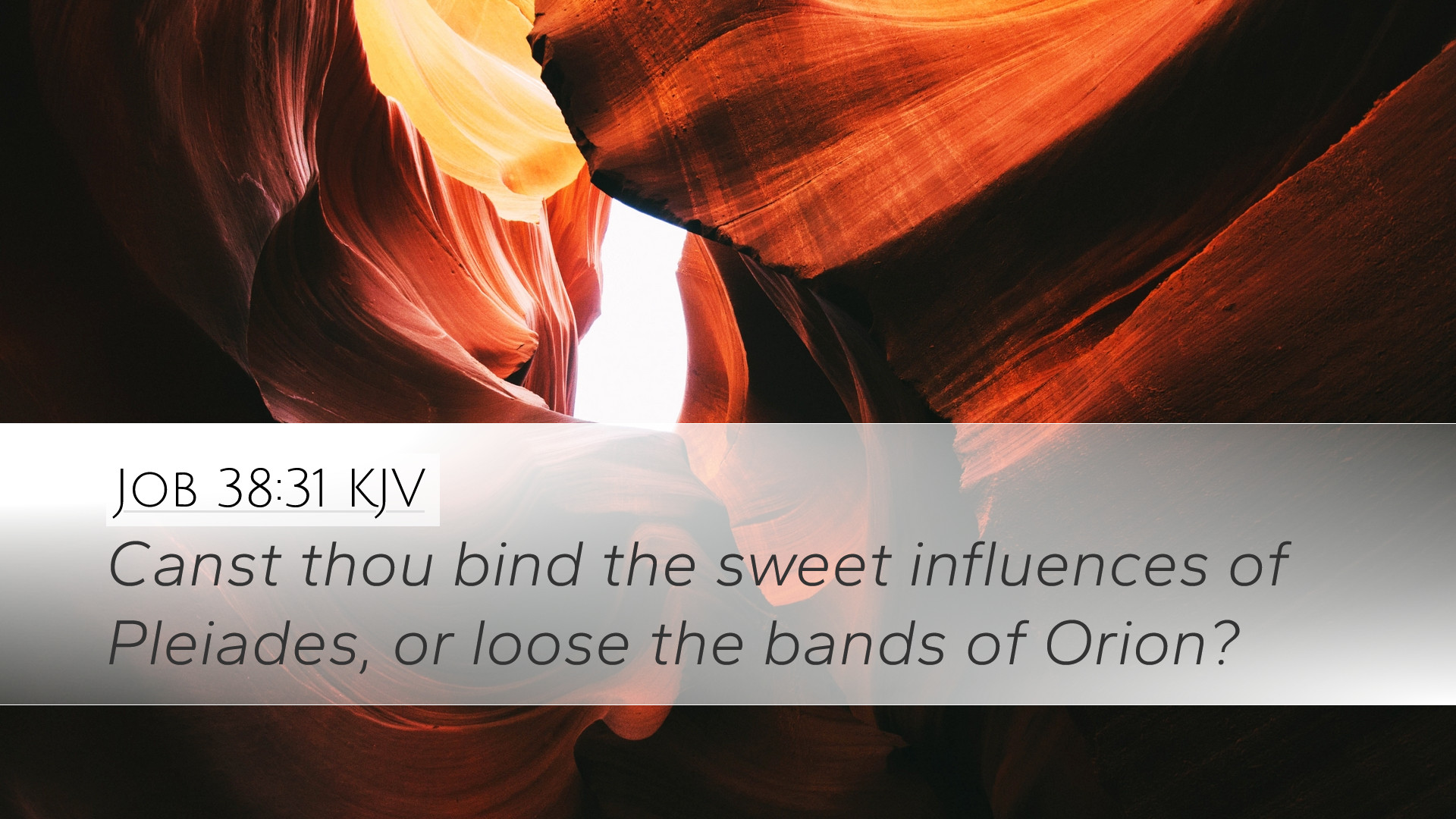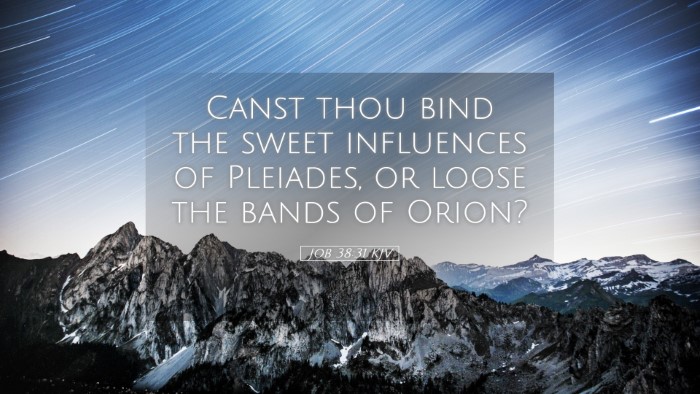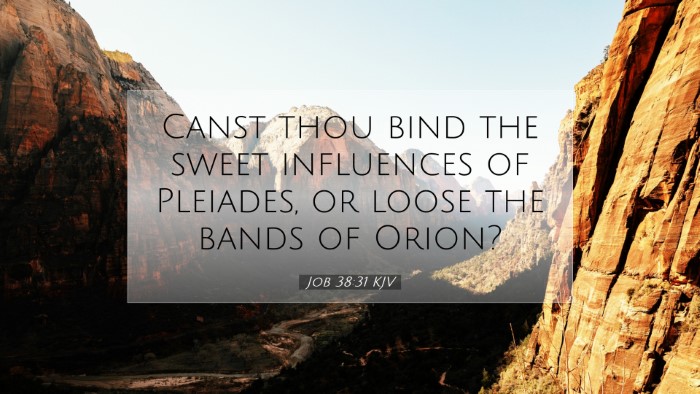Commentary on Job 38:31
Job 38:31 reads: "Can you bind the chains of the Pleiades, or loose the cords of Orion?" This verse is part of a significant section in the book of Job where God responds to Job, demonstrating both His sovereignty and the limitations of human understanding.
Context of Job 38
In the preceding chapters, Job has been lamenting his suffering and seeking answers from God regarding his affliction. His friends have offered their explanations which largely point to Job's unconfessed sin as the cause of his misfortunes. However, God's response does not address Job's situation directly but instead questions Job’s understanding about creation, nature, and divine governance.
Analysis of Specific Terms
“Can you bind the chains of the Pleiades”
- The Pleiades, also known as the Seven Sisters, is a cluster of stars that has captivated humanity for millennia. In ancient cultures, these stars often held significant astronomical and mythological importance.
- The imagery of “binding the chains” suggests control and order over the celestial bodies, which is attributed to God's sovereignty alone.
“or loose the cords of Orion?”
- Orion, another prominent constellation, is often associated with strength and the heroic warrior archetype in various traditions.
- To “loose the cords” signifies the ability to manipulate creation, which again emphasizes God's unique power over the cosmos.
Theological Insights
In this verse, God challenges Job's understanding of both the natural world and God’s might. Here are some theological insights drawn from public domain commentaries:
1. The Sovereignty of God
Both Matthew Henry and Adam Clarke expound on the theme of God’s sovereignty in nature. They emphasize that God alone holds power over the universe, orchestrating the movements of celestial bodies according to His divine will. This stands as a reminder to humanity of our limitations and God’s omnipotence.
2. The Mystery of Creation
Albert Barnes highlights the mystery surrounding the cosmos and points to the ways in which God has designed it with precision. The beautiful complexities of the stars serve as a testament to God’s creative genius, inviting worship and reverence rather than self-sufficiency from mankind.
3. Human Limitations
The rhetorical nature of God’s questions indicates the futility of Job (and humanity) attempting to question or challenge God’s ways. As Clarke writes, our inability to grasp the full scope of God’s creation serves to humble us in our quest for understanding.
Implications for Understanding Suffering
This interaction between God and Job illustrates that human suffering, while perplexing, exists within the context of a vast, divinely governed universe. The insignificance of humanity’s greatest questions about suffering—militated against the grandeur of God's creation—reminds believers to trust in God’s ultimate wisdom and timing.
Application for Pastoral Contexts
For pastors and theologians, Job 38:31 provides a prism through which to view the complexities of life experiences. When counseling those in distress, it is crucial to remind them of the vastness of God’s creation and His meticulous care over all things. This perspective may help alleviate feelings of insignificance, as they can take solace in the fact that their suffering is observed by a sovereign Creator.
Conclusion
Job 38:31 serves as a powerful reminder of God’s majesty when contrasted with human frailty. It invites reflection on the greatness of God’s creation and the relative smallness of human concerns. Job’s experience ultimately leads to a deeper understanding of faith that transcends mere comprehension of suffering, advocating for a trust in God’s perfect and overarching plan.


